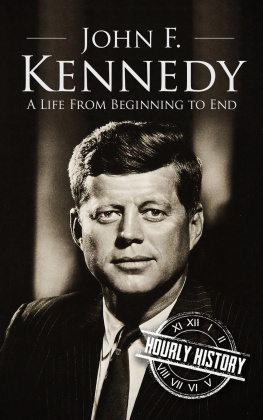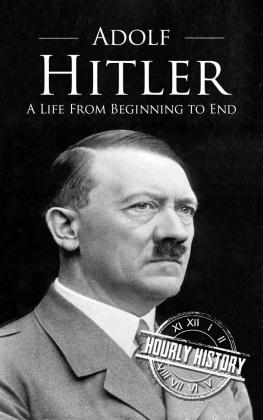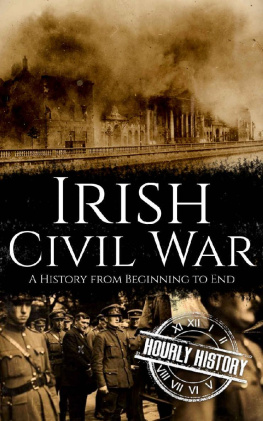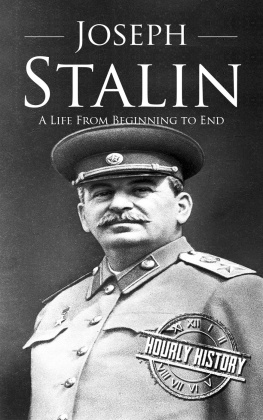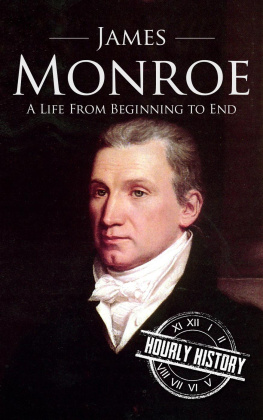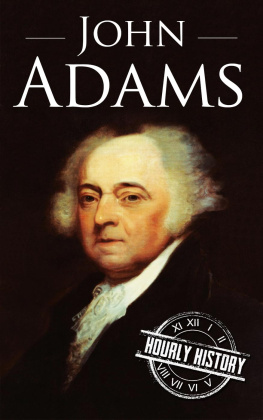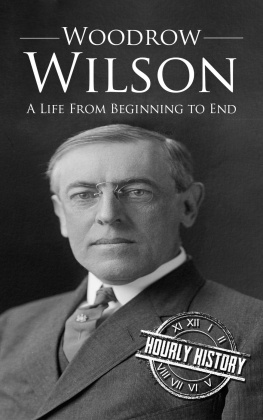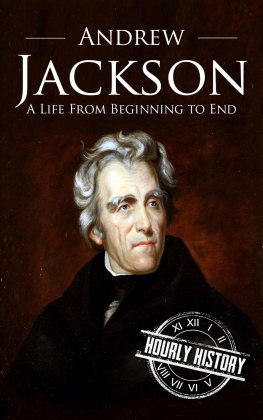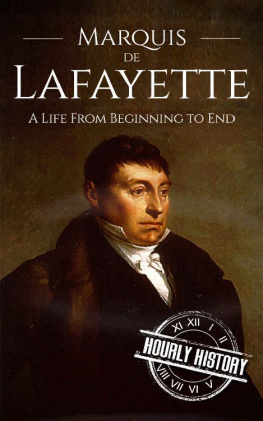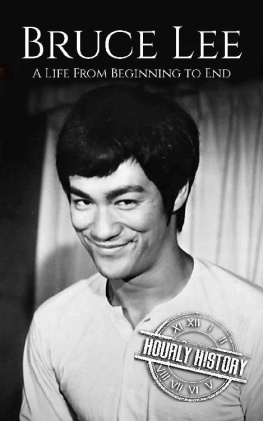Hourly History - Richard Nixon: A Life From Beginning to End (Biographies of US Presidents Book 37)
Here you can read online Hourly History - Richard Nixon: A Life From Beginning to End (Biographies of US Presidents Book 37) full text of the book (entire story) in english for free. Download pdf and epub, get meaning, cover and reviews about this ebook. year: 2017, publisher: Hourly History, genre: Politics. Description of the work, (preface) as well as reviews are available. Best literature library LitArk.com created for fans of good reading and offers a wide selection of genres:
Romance novel
Science fiction
Adventure
Detective
Science
History
Home and family
Prose
Art
Politics
Computer
Non-fiction
Religion
Business
Children
Humor
Choose a favorite category and find really read worthwhile books. Enjoy immersion in the world of imagination, feel the emotions of the characters or learn something new for yourself, make an fascinating discovery.

- Book:Richard Nixon: A Life From Beginning to End (Biographies of US Presidents Book 37)
- Author:
- Publisher:Hourly History
- Genre:
- Year:2017
- Rating:5 / 5
- Favourites:Add to favourites
- Your mark:
- 100
- 1
- 2
- 3
- 4
- 5
Richard Nixon: A Life From Beginning to End (Biographies of US Presidents Book 37): summary, description and annotation
We offer to read an annotation, description, summary or preface (depends on what the author of the book "Richard Nixon: A Life From Beginning to End (Biographies of US Presidents Book 37)" wrote himself). If you haven't found the necessary information about the book — write in the comments, we will try to find it.
Hourly History: author's other books
Who wrote Richard Nixon: A Life From Beginning to End (Biographies of US Presidents Book 37)? Find out the surname, the name of the author of the book and a list of all author's works by series.
Richard Nixon: A Life From Beginning to End (Biographies of US Presidents Book 37) — read online for free the complete book (whole text) full work
Below is the text of the book, divided by pages. System saving the place of the last page read, allows you to conveniently read the book "Richard Nixon: A Life From Beginning to End (Biographies of US Presidents Book 37)" online for free, without having to search again every time where you left off. Put a bookmark, and you can go to the page where you finished reading at any time.
Font size:
Interval:
Bookmark:
Copyright 2017 by Hourly History.
All rights reserved.
Throughout his political career, Richard Nixon frequently conjured up the memory of his humble origins - and he was justified in doing so. As he pulled himself up by his own bootstraps, Nixon worked for everything he gained, and he was keenly aware of those who, in his view, had been born into a life equipped with an abundance of silver spoons. He never seemed to recover from the resentment that he felt.
The traits that made him a success shared equal time with the flaws that would be his undoing. He was bright and hard-working, devoted to his family and his country. He was also insecure, with a keen sense of inferiority and the conviction that he was a victim of, as he saw it, the haves. Throughout his career in the political arena, the habit of what would later be known as dirty tricks came to be a favorite weapon in his toolkit of ways to win elections. His resentment of the people he opposed in campaigns whose backgrounds were the epitome of what his was not would take on Shakespearean levels of envy that colored his judgment and his perception of his own power.
He was born to working parents who struggled. He did all the right things in order to pull himself out of the humble, hardscrabble roots of his upbringing, studying and working hard so that he could be among the best. He served his country during World War II; when the war ended, he ran for elected office. Capable and pragmatic, Richard Nixon achieved the power that he sought as he climbed the elected ladder, but as the ticking bomb of Watergate detonated, the American electorate received a view into the manipulation of power that seemed more attuned to the Globe Theatre than it did to the White House; manipulation, vulgarity, dishonesty - all caught on tape.
In some ways, the tapes came to define the Nixon presidency as the dark decisions of the Oval Office were exposed to a public audience. American views toward the presidency were changed forever, but what emerged from the debacle of Watergate was, miraculously, a validation of the Constitution that demonstrated the resilience of the American political process. Standing at the center of the vortex, Richard Milhous Nixon, the thirty-seventh president of the United States and the only one to resign from office, lived out a drama with a cast of characters whose names have become synonymous with a time in history that will never be forgotten: John Dean, H.R. Haldeman, John Ehrlichman, the Presidents men; Judge Sirica; Archibald Cox; Sam Ervin; Howard Baker; Woodward and Bernstein; Deep Throat; and others.
Before Watergate, there was a man who wanted to serve his country. Discovering him anew is somewhat of an archaeological quest because Richard Nixon is layered by complicated loyalties, enigmatic ethics, and a deep-rooted distrust of others. His wife praised him as someone who was a lot of fun; his daughters loved him; he was such a fan of sports that he used football metaphors in his speeches, and he loved to play the piano. Was he the embodiment of the American man who achieved his dream, or the villain whose downfall came about from his own hubris?
Or was he both?
Its tempting, given the course of his life, to make a metaphor out of the fact that Richard Milhous Nixon was born on a lemon ranch. His parents Francis and Hannah Milhous Nixon welcomed Richard, the second of five sons, on January 9, 1913. The farm eventually failed, so perhaps the metaphor is not entirely incorrect. The losses eventually lead the Nixons to move away from Yorba Linda, where they lived in a house that Hannahs father had built, to Whittier, California, near other relatives, as well as more Quakers, which was the familys faith. The Nixons ran a grocery store/gas station, and all members of the family worked there. Money was tight. The Nixons worked hard to make ends meet for their family, and their sons knew hard times from birth.
Richard Nixon, after attending Easter Whittier Elementary School and being named the president of his eighth-grade class, was sent to Fullerton Union High School rather than Whittier High School. That was because the Nixons believed that their oldest son had fallen in with a bad crowd at Whittier High. The distance to the school meant that the freshman had a two-hour round-trip bus ride to get to school. He later lived with an aunt to reduce the amount of time he spent traveling.
Nixon was more successful as a student than an athlete, but his lack of playing time didnt diminish his zeal for sports. However, he was a champion debater and was mentored by the schools head of the English Department, who told him to treat a debate like a conversation and not to shout. The advice worked, bringing him awards and championships and a talent for discussion.
When his junior year began, Richard Nixon was permitted to attend the nearby Whittier High School, but the year was a difficult one. He was defeated in his bid to be student body president. As a result of his older brothers tuberculosis, more of the burden of helping the family in the store fell upon Richard Nixon. Now it was up to Richard to awaken at 4:00 in the morning so that he could drive into Los Angeles to buy vegetables to sell; returning from the drive, he washed the vegetables and put them out for sale before he began his school day.
Mrs. Nixon took her ailing older son to Arizona in the hopes of healing his condition, but the move didnt help. Oldest son Harold died after suffering for a long time from tuberculosis, and younger son Arthur died of the same disease, shorter in duration; both had died before Nixon reached adulthood, and during those years, his mother spent much time nursing her sons. For a time, the family feared that Richard himself had contracted the disease when it appeared as though there was a spot on his lung. His parents solution was to forbid him to take part in sports, but ultimately the spot proved to be leftover scar tissue from pneumonia that hed had earlier.
Its easy to interpret Nixons character as an adult from the traits of his parents. His father was abusive at times; his mother was said to have a pleasant temperament, but also controlling, although Nixon would describe her as a saint. But the family did not display affection outwardly, and that reserve reinforced Nixons introverted nature.
Despite financial difficulties, Nixon graduated from high school, ranked third out of a class of 207; that was quite an accomplishment in 1930 in an era when not everyone was able to finish high school, particularly at the beginning of the Great Depression, which had begun the year before. Because of his familys limited funds, Nixon was unable to accept a scholarship to Harvard and Yale University. Instead, he enrolled at Whittier College, living at home and working at the family store as he pursued his education, which was paid for by a bequest from his maternal grandfather.
It might not have been Harvard, but Whittier College was a good move for Nixon. He played football, was elected president of the freshman class, and vice president and president of the student body during his junior and senior years. He began to hone his debating skills, earned major roles in dramatic productions, and graduated second in his class. The college had literary societies rather than fraternities, but the Franklin Club consisted of the sons of Whittiers upper crust. When refused admission to the exclusive organization, Nixons response was to found an organization for working-class students. His academic prowess won him plaudits, and he received a full scholarship to Duke University School of Law. He worked hard in law school and was elected president of the Duke Bar Association. Duke wanted to attract top students and required second- and third-year students to compete fiercely in order to maintain the scholarship theyd won in their first year. Nixon was up to the challenge. Once again he displayed his academic excellence, graduating third in his class in 1937. His achievements were impressive, but a theme emerged, one that had begun early in life, which would dominate his psyche during his political career. Nixon saw himself as a member of the have not segment of society, and what grew out of this was a fierce resentment of the people, like John Kennedy, his future political opponent, who were, as he saw it, the haves.
Font size:
Interval:
Bookmark:
Similar books «Richard Nixon: A Life From Beginning to End (Biographies of US Presidents Book 37)»
Look at similar books to Richard Nixon: A Life From Beginning to End (Biographies of US Presidents Book 37). We have selected literature similar in name and meaning in the hope of providing readers with more options to find new, interesting, not yet read works.
Discussion, reviews of the book Richard Nixon: A Life From Beginning to End (Biographies of US Presidents Book 37) and just readers' own opinions. Leave your comments, write what you think about the work, its meaning or the main characters. Specify what exactly you liked and what you didn't like, and why you think so.

